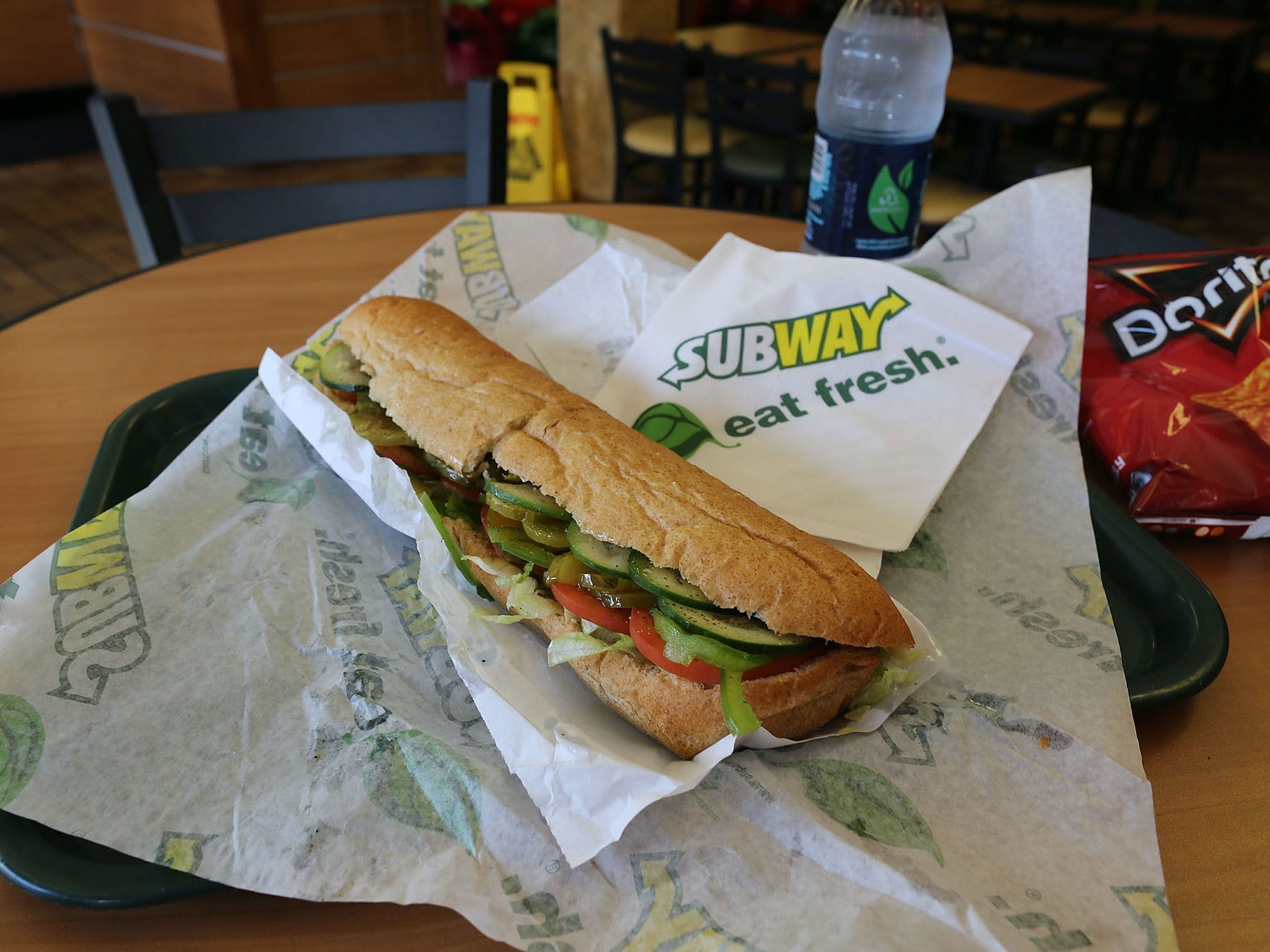
Joe Raedle/Getty
- A lawsuit claims Subway mislabels its “tuna” because the product does not contain actual tuna fish.
- “These claims are meritless,” a Subway spokesperson said.
- In 2020, an Irish court ruled Subway sandwich rolls cannot be legally defined as bread due to the high sugar content.
- Visit Business Insider’s homepage for more stories.
Subway got hit with a lawsuit claiming its tuna is not actually tuna.
Plaintiffs Karen Dhanowa and Nilima Amin filed a class action complaint against Subway in the US District Court in Northern California, claiming the fast food chain makes false claims about its tuna meat.
The lawsuit claims “independent testing repeatedly affirmed” Subway makes the tuna product with no actual tuna fish, but did not name the agencies that conducted such tests. The suit argues Subway profits off mislabeling the tuna product by using cheaper ingredients.
“The products are made from a mixture of various concoctions that do not constitute tuna, yet have been blended together by Defendants to imitate the appearance of tuna,” the suit claims. “Defendants identified, labeled and advertised the products as “tuna” to consumers, when in fact they were not tuna.”
Subway's website said a serving of tuna contains 620 milligram of sodium and 24 grams of total fat. Tuna is the only seafood the chain sells, and only buys skipjack and yellowtail tuna from fisheries with stocks that aren't overfished, according to the company.
"These claims are meritless," a Subway spokesperson said in a statement to Insider. "Tuna is one of our most popular sandwiches. Our restaurants receive 100% wild-caught tuna, mix it with mayonnaise and serve on a freshly made sandwich to our guests."
The spokesperson added, "Subway will vigorously defend itself against these and any other baseless efforts to mischaracterize and tarnish the high-quality products that Subway and its franchisees provide to their customers, in California and around the world, and intends to fight these claims through all available avenues if they are not immediately dismissed."
The suit follows Ireland's Supreme Court decision in 2020 that ruled Subway sandwich rolls cannot be legally defined as bread due to the high sugar content. Sugar accounts for 10% of the weight of the flour in Subway sandwich rolls, judges said, and the country defines bread as having fat, sugar, and bread improver weighing less than 2% the flour weight.
A few years earlier, Canadian broadcaster CBC conducted a forensic DNA analysis that found Subway chicken contained around 50% chicken DNA - the remaining DNA in the Subway chicken product was related to soy.
Subway recently introduced protein bowls, which contain the ingredients of a sandwich without bread and served in a bowl, to menus nationwide.
Subway reported weak sales last year due to the pandemic's impact on the restaurant industry. The fast-food chain reportedly closed 2,200 to 2,400 restaurants, or 10% of its total stores, in 2020.
Got a tip? Email the author at [email protected].
